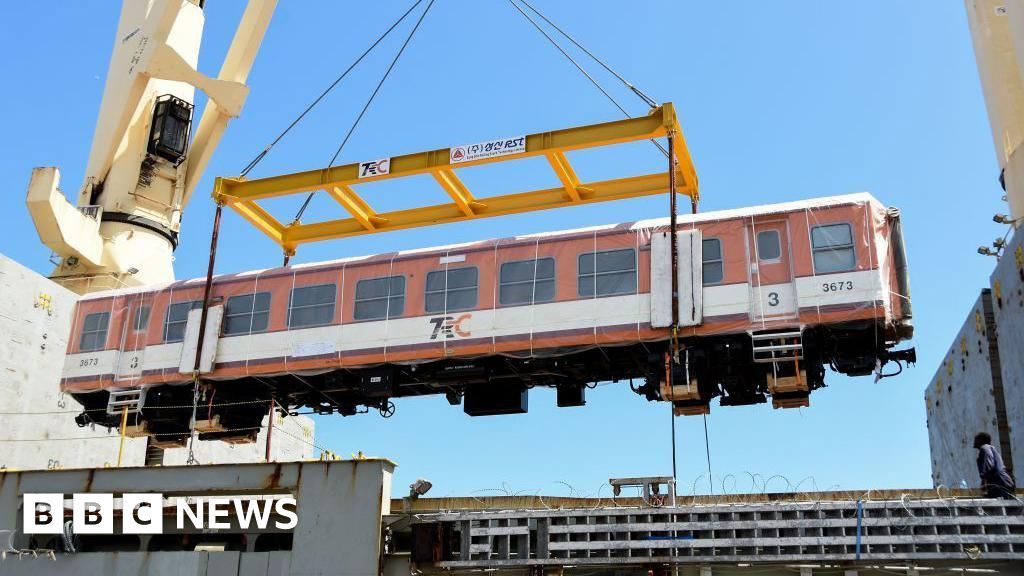Keir Starmer and Olaf Scholz discuss Anglo-EU relations
Olaf Scholz, Germany’s beleaguered Chancellor, is now desperately trying to delay a federal election after his tenure was plunged into chaos following his sacking of Finance Minister Christian Lindner, a former MEP has said.
Meanwhile, one Brussels insider has said the unfolding crisis was shining a light on the “seemingly never-ending economic woes” of a country that is traditionally regarded as the European Union’s economic powerhouse.
Germany’s government coalition collapsed in dramatic fashion last night after Mr Scholz fired Mr Lindner of the pro-business Free Democrats in a late-night move after a marathon of crisis meetings.
In dispensing of his services, Mr Scholz accused Mr Lindner of "petty political tactics” and of showing "no willingness to implement any of our proposals.
The three remaining ministers of the Free Democrats resigned in response, leading to the downfall of the coalition.

Chancellor of Germany Olaf Scholz (Image: Getty)
Mr Scholz is expected to lead the country with a minority government, but the opposition is calling for an immediate no-confidence vote.
Mr Henkel, who served in the European Parliament from 2014 to 2019 and as president of the Federation of German Industries (BDI) from 1995-2000, told Express.co.uk: "Rather than throwing only money at the problems, as both Greens and Social Democrats wanted, Finance Minister Lindner insisted on staying within the debt guidelines provided by the German constitution and demanded reforms.
Although officially Mr Scholz had fired Mr Lindner, it was in fact Lindner, whose party suffered huge losses in State elections and national polls, who deserted the coalition by insisting on these demands knowing full well Mr Scholz would not accept them, Mr Henkel pointed out.
He continued: "Scholz and his only remaining coalition partner Harbeck of the Greens now try to delay new elections as much as possible. No wonder, as both parties‘ popularity has collapsed.

Finance Minister Christian Lindner was fired yesterday (Image: Getty)
"This is the chance for Friedrich Merz, the official candidate for chancellorship of the opposition CDU/CSU.
"He insists on early elections, on a program reflecting the military threat by Russia, the vanishing competitiveness of German industries, on a much stricter control of illegal immigrants and on a reform of Germany‘s social security systems.”
There was another factor, namely Donald Trump’s victory in Tuesday’s US Presidential election, Mr Scholz suggested.
He explained: “Scholz has made no secret of his disdain for Trump. While I share this disdain wholeheartedly, a Head of Government should have been more careful.
Invalid email
We use your sign-up to provide content in ways you've consented to and to improve our understanding of you. This may include adverts from us and 3rd parties based on our understanding. You can unsubscribe at any time. Read our Privacy Policy

CDU/CSU leader Friedrich Merz (Image: Getty)
"With Merz, who for years represented the American company Blackrock in Germany and was the Head of the Atlantic Bridge an influential private organisation promoting friendship between the USA and Germany.”
As such, a new German Government could potentially alleviate some of Trump‘s anger and prejudices about Germany and avoid Mr Trump exacting “revenge” by for example slapping import duties on German-built cars, withdrawing US troops from German soil revoking President Joe Biden‘s commitment to station new mid-range missiles in Germany.
Mr Scholz said: "Trump’s obsession with Germany seem to stem from his German ancestor’s experience with their country of origin as well as from a couple of clashes with the then Chancellor Angela Merkel.
"The issues between Scholz and Lindner are not new at all. That they resulted in a collapse of the Red-Green-Yellow Traffic-Light coalition on the day after Trumps re-election may not be an incident at all."
Pieter Cleppe, editor of the brusselsreport.eu website, blamed what he called Germany’s "failed "energy transition” plan”, which pressed ahead with shutting down nuclear plants in 2022 in the midst of an energy crisis, for the coalition’s collapse.
He warned: "As a result, voters are likely to punish the parties that compose the fallen coalition hard, evicting the greens from power.

Olaf Scholz has been 'disdainful' of Donald Trump in the past, said Mr Henkel (Image: Getty)
"A broader debate is now also enfolding on Germany's economic worries, which seem to know no end. This is closely linked to euro accession, which not only eroded purchasing power but also enabled German companies to compete on price instead of on quality. This served as an incentive for them not to sufficiently innovate.
"Apart from that, there were of course the large-scale energy supply experiments and fossil fuels phase-out, strongly supported by former Chancellor Angela Merkel, whose legacy is looking more dim by the day.”
Finally, Germany is a country with "very high taxes, lack of investment in infrastructure and overregulation”, Mr Cleppe said.
He concluded: "Furthermore, no welfare state reform to speak of took place after former German Chancellor Schroeder's Agenda 2010 reform agenda.”
Speaking today, Mr Merz vehemently rejected Scholz's plan to wait to hold a vote of confidence until January.
He said: “The coalition no longer has a majority in the German Bundestag, and we therefore call on the chancellor to call a vote of confidence immediately, or at the latest by the beginning of next week.
“We simply cannot afford to have a government without a majority in Germany for several months now, and then campaign for several more months, and then possibly conduct coalition negotiations for several weeks."

 1 week ago
1
1 week ago
1









 English (US) ·
English (US) ·